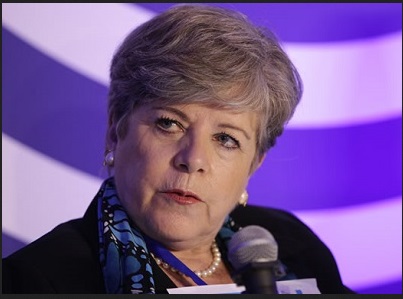
The Economic Commission for Latin America and the Caribbean (ECLAC) says Foreign Direct Investment (FDI) inflows in the Caribbean shrank in 2018.
“In the Caribbean, inflows shrank by 11.4 percent due to lower investment in the Dominican Republic (US$2.535 billion -29 per cent), which is the main receiver in that subregion,” says the ECLAC report titled – “Foreign Direct Investment in Latin America and the Caribbean 2019.”
Overall, however, FDI flows to Latin America and the Caribbean increased by 13.2 percent in 2018 versus 2017, totaling US$184.287 billion and putting an end to five years of decline, although last year’s figure was still below the values recorded during the boom cycle for commodities prices, the report stated.

“Upon analyzing the different components of FDI, it can be seen that the dynamism regained in 2018 was not based on the entry of capital contributions – which would be the most representative source of companies’ renewed interest in establishing themselves in the region’s countries – but instead on the growth in profit reinvestment and loans between companies,” said ECLAC Executive Secretary, Alicia Bárcena, in launching the report at a press conference on Wednesday at ECLAC’s headquarters in Santiago, Chile.
The study shows great heterogeneity in national trends: in 16 countries, inflows increased versus 2017, whereas in 15 other countries, they declined.
Most of the growth in FDI in 2018 is due to greater investment in Brazil (US$88.319 billion – 48 per cent of the regional total) and Mexico (US$36.871 billion – or 20 per cent of the total), the report says.
In terms of amounts, they are followed by Argentina (US$11.873 billion – 3.1 per cent increase from 2017), Colombia ($11.352 billion – 18 per cent decline), Panama ($6.578 billion – 36.3 per cent increase) and Peru (US$6.488 billion dollars, a 5.4 percent decline).
The report says inflows to Chile (US$6.082 billion grew slightly by 3.9 per cent), “but, as in 2017, capital flows into the country were clearly below the average notched in the last decade.”
“In an international context of a reduction in FDI flows and strong competition for investments, national policies should not be oriented towards returning to the sums recorded at the start of the decade but rather towards attracting ever more FDI that contributes to forming knowledge-based capital and advancing towards sustainable patterns of production, energy and consumption,” Bárcena said.
“The growing incorporation of a sustainable development approach in the strategic decisions of the world’s main transnational companies constitutes an opportunity for designing policies that accompany this paradigm shift,” she underscored.
The report says the prospects for 2019 are “not encouraging due to the international context”, forecasting a decline of up to 5 per cent in FDI inflows.
In 2018, the report says FDI in Central America grew 9.4 per cent compared with 2017, “due to the impetus of Panama.”
Forty-seven per cent of FDI inflows in 2018 corresponded to the manufacturing industry, 35 per cent to services, and 17 per cent to natural resources.
The report disclosed that the majority of capital that entered the region came from Europe, which has a bigger presence in the Southern Cone, and from the United States, the main investor in Mexico and Central America.
China, meanwhile, had less participation in mergers and acquisitions in Latin America and the Caribbean, according to the report.
The document also analyzes the contribution of transnational companies from the Republic of Korea to the region’s productive transformation, along with the advantages that quality FDI could have for the agro-food chain.
Latin America and the Caribbean was the destination for around 5 per cent of all South Korean investments in the 2007-2018 period, the report says.
It says South Korea, which mainly uses the modality of greenfield projects, has supported the development of high-value-added manufacturing in the region, especially in the automotive industry in Mexico and Brazil.
“The location of Korean companies in the region represents an opportunity to foster a more sophisticated productive fabric, as long as the policies for attracting and maintaining FDI are integrated into a national development project,” the report says.
It also says that FDI “can contribute to producing in regional agro-food chains the change needed to tackle the environmental and social challenges of the coming decades.”
Advertise with the mоѕt vіѕіtеd nеwѕ ѕіtе іn Antigua!
We offer fully customizable and flexible digital marketing packages.
Contact us at [email protected]













